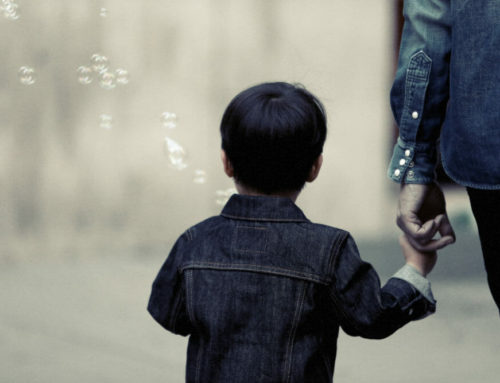For the second post in this series, I’m sharing eight tips to utilize when you are ready to tell your kids about your divorce. This is definitely not a fun time for anyone! However, if you and your ex-partner are prepared ahead of time and tell your kids in a healthy way, it will be easier for you and will go a long way in helping your kids cope with the divorce.
- If possible, the whole family should hear the news together. Both parents should tell your kids that you are getting divorced. Try to remain calm and united when sharing the news with your kids. Present it as a joint decision – no blaming each other in front of your kids! Although this may be tough, you want your kids to continue to see you as united co-parents even when you are no longer married.
- Give your child a simple, honest, age-appropriate explanation about the divorce. There’s no need to go into any details about the specifics. A statement such as “Mom and Dad decided together that we will be happier living apart because we’ve been fighting a lot” is a great example of a simple but honest answer.
- Even if the divorce is due to an abusive situation or other negative environment, children don’t always understand the reasons, and it’s likely going to be more harmful than helpful to them to hear details. This includes teenagers – they often express wishes that their parents didn’t tell them so much about the reasons behind a divorce.
- Be available to listen to your child’s thoughts and feelings regarding the divorce. Empathize with their feelings, whether they are sad, angry, guilty, or something else. Try to just listen without judgment and show them you understand why they feel that way. Be available both when you tell them about the divorce as well as many times in the following days, weeks, and months – it may take a long time for your child to process their feelings and want to talk about them.
- Be sure they understand that the divorce is not their fault. This is most important with younger kids, who often believe they caused their parents’ divorce. Tell them it’s not their fault often, especially early in the process. It’s not about logic, so once is not enough. Kids need to understand at an emotional level, too.
- Explain to your child that you won’t stop loving them. Kids often worry that because their parents fell out of love with each other, they will fall out of love with them too. Make sure they understand this is not a possibility. This also means letting them know that you’ll continue to see them regularly, which leads to the next step:
- Try to have the details all worked out before you share anything with your kids. This includes custody, visitation schedule, and where everyone will be living. You will likely want to meet with a mediator or attorney to ensure you’ve taken care of everything, and they can also help you come to decisions that you’re having trouble agreeing on. Make sure your child understands that you and their other parent came up with this plan together because you thought it would be the best for them. Again, present it as a joint decision. If you’re unhappy with the schedule, child support, or anything else, discuss this with their other parent – don’t discuss this with your kids.
- Set up a regular, consistent visitation schedule. The specifics of this schedule will depend on many factors, including your child’s age, your work schedules, and how far apart you and your ex-partner will be living. Don’t ask the child to choose who they want to live with. This creates unnecessary pressure and stress on the child.
- Take responsibility for your own behavior. You can’t change or control your ex, but you can change and control yourself. Divorces are often full of negative emotions, but your children don’t need to bear the brunt of them. For example, if your ex-partner begins telling your kids negative things about you, continue to stick to your plan even though the other person deviated! It’s not going to help your kids to have you both fighting and blaming each other. It will be best for them if at least one of you can continue to remain calm and in control of your behavior.
Stay tuned for Part 3 of this series, After the Divorce, next.




